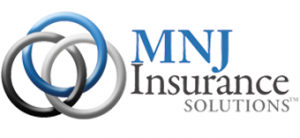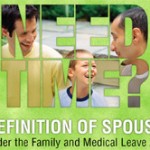Section 125: Who CANNOT Participate in a Cafeteria Plan, FSA, or HRA
We often receive the question of “Who can and cannot participate in a Section 125 Cafeteria Plan, Flexible Spending Account (FSA), or HRA?” From time to time, we find clients who are participating in tax-favored benefits who should not, as they are not eligible, or they do not have a plan document in place. Of course, these items can be an issue!
First, it is important to note, an employer’s eligibility rules may not discriminate in favor of highly compensated individuals. Pursuant to Code section 125(g)(3), a plan does not discriminate in favor of highly compensated individuals if it meets all of the following:
- The plan benefits a classification of employees that does not discriminate in favor of highly compensated individuals;
- The same employment requirement applies to all employees and the plan does not require more than three years of employment to participate; and
- Entry into the plan is not delayed.
While there are some exceptions, generally an employer can define which classes of employees and former employees are eligible to participate in a Section 125 plan. However, the following individuals are NOT eligible to participate in Section 125 Cafeteria Plan, Flexible Spending Account (FSA), or Premium Only Plan (POP), or any of its qualified benefits:
- More than 2% shareholder of an S-corporation, or any of its family members,
- Sole proprietor,
- Partner in a partnership, or
- Non-employee director, solely serving on a corporation’s board of directors, and not otherwise providing services to the corporation as an employee. (26 CFR Section 1.125-1(g)(2)(i).
There are a few exceptions to the above-mentioned rule:
- Dual-status individuals are eligible IF they are both an employee and provide services to the employer as a director or independent contractor. This rule is not available for partners or more than 2% S-corporation shareholders. (26 CFR Section1.125-1(g)(2)(iii).
- Employee spouse of self-employed individuals are eligible if they are bona fide employees and are not themselves self-employed. State laws relating to ownership (especially in community property states) may also affect their status.
NOTE: Sole proprietors, partnerships, and S-corporations may still sponsor Section 125 Cafeteria Plans and FSAs to their employees, and there are benefits to both the employer and employee for doing so. In addition, the more than 2% shareholders in a S-corporation can still deduct health insurance premiums paid or reimbursed by the S-corporation, but must report these payments as income. (Notice 2008-1).
Health Reimbursement Arrangements (HRA)
Self-employed individuals cannot participate in HRAs. The same rules described above for Cafeteria Plans and their qualified benefits also apply to HRAs. Informal guidance by the IRS suggests that the self-employed individuals cannot participate in a HRA even if they are taxed on the value of the benefits they receive.
Other Things to Take into Consideration:
Non-discrimination Testing: Since self-employed individuals are not eligible to participate in Cafeteria Plans, qualified benefits and HRAs, they should not be included in the non-discrimination testing for such plans. However, for Section 125 testing, understand that employee-spouses will almost always qualify as Key Employees under the ownership attribution rules, and may make a plan susceptible to failing the Key Employee Concentration Test.
Consequences of Non-compliance: The Section 125 Cafeteria Plan Regulations provide a non-exhaustive list of 11 operational failures that will disqualify the tax-favored status of a Cafeteria Plan and all of its qualified benefits, including a FSA, forcing all such benefits for participants to be reclassified as taxable income. Similarly, an HRA with ineligible participants would lose its tax-favored status for all participants.
If you have any questions or would like to further discuss how a Section 125 can benefit your company and its employees, reduce benefit costs, and improve employee engagement, please contact MNJ Insurance Solutions at (714) 716-4303.
This content is provided for informational purposes only. While we have attempted to provide current, accurate and clearly expressed information, this information is provided “as is” and MNJ Insurance Solutions makes no representations or warranties regarding its accuracy and completeness. The information provided should not be construed as legal or tax advice or as a recommendation of any kind. External users should seek professional advice form their own attorneys and tax and benefit plan advisers with respect to their individual circumstances and needs.





